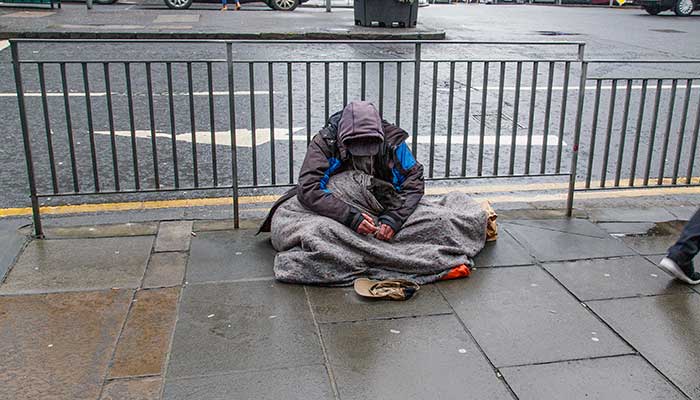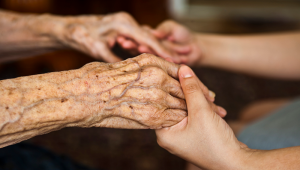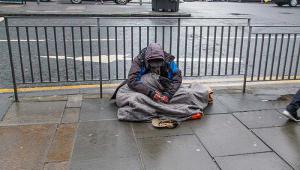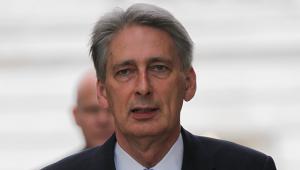
People are right to describe homelessness and rough sleeping in Britain as a growing humanitarian crisis. After years of austerity the number of people sleeping rough on England’s streets grew by 165% between 2010 and 2017, despite seven years of economic growth.
Theresa May’s administration signalled a step change in Conservative policy to both homelessness and social housing, driven by a hugely ambitious election manifesto pledge to halve rough sleeping by 2020 and end it altogether by 2027.
On its anniversary we can say that the last administration’s ‘rough sleeping strategy’ is starting to have an impact.
The figures clearly show that in areas where there was increased funding from the ‘rough sleepers initiative’ there was a subsequent fall in the numbers of people sleeping on the streets.
Areas which received additional RSI funding saw the number of rough sleepers fall by almost a quarter (23%) on average – almost halfway to the manifesto pledge to halve rough sleeping by 2020.
However, areas which received no additional money saw a 41% rise in rough sleepers on average. So, overall there was only a very slight fall in the number of rough sleepers in England – a 2% drop – woefully short of the government’s target.
In some areas the results of RSI funding have been quite staggering, including in Medway where Riverside works in partnership with Medway Council to deliver RSI funded projects.
The funding has enabled Riverside to work with the councils to deliver emergency beds for rough sleepers in hostels and provide homes for rough sleepers through ‘Housing first’, which has been successful in getting entrenched rough sleepers off the streets and sustaining a tenancy.
Overall this has helped to reduce rough sleeping in Medway by 57%.
Our ‘Housing first’ service in Medway enabled a wheelchair user who had been sleeping rough behind McDonald’s to move into his own home for the first time in 20 years.
So, what we can say quite definitively is that RSI funding and the rough sleeping strategy are working.
'Short-term funding also creates anxiety for support workers in homelessness services, who often operate on short, fixed-term contracts, which could tempt them to leave the sector in order to help them plan their own lives with more certainty, at a time when their experience is greatly needed.'
However, providing services with small pots of time-limited funding without any assurance or certainty does not enable us to create the best outcomes for homeless people.
Councils and homelessness services providers cannot plan to invest for the longer term and the uncertainty of the funding causes anxiety for the rough sleepers some of whom have put their trust in someone for the first time in years – sometimes decades – to provide them with the help and support that they need.
Short-term funding also creates anxiety for support workers in homelessness services, who often operate on short, fixed-term contracts, which could tempt them to leave the sector in order to help them plan their own lives with more certainty, at a time when their experience is greatly needed.
It also creates an administrative burden on councils and the providers of homelessness services who have to invest time to keep bidding for small pots of money.
Investing in rough sleeping services will help to save taxpayers money.
The charity Crisis estimate that one person sleeping rough for a year can cost public services £20,000 in emergency support.
However, Riverside has been involved in co-ordinating Greater Manchester’s ‘A bed every night’ scheme, across the region, a service which is costing the combined authority £32 per person per night to deliver. A bed every night costs £11,680 to put a roof over someone’s head for a year - £8,230 less than the cost of doing nothing.
This demonstrates that it can cost the public purse more if we do nothing than if we invest in rough sleeping services.
We’ve just seen Boris Johnson commit billions of pounds of much-needed additional funding to the NHS, police officers and much needed infrastructure projects like Northern Powerhouse Rail.
Our message to our new prime minister is that the growth in rough sleeping and homelessness has made this a significant national issue visible to everyone in towns and cities across Britain.
The government’s ‘rough sleeping strategy’ and additional funding is starting to bear real fruit.
Now that we can prove that this money is working, it is time for significant, sustained, and long-term funding so we can help dramatically reduce the numbers of people sleeping rough on our streets, save the taxpayer money and empower thousands of people to lead fulfilling, productive lives.




















